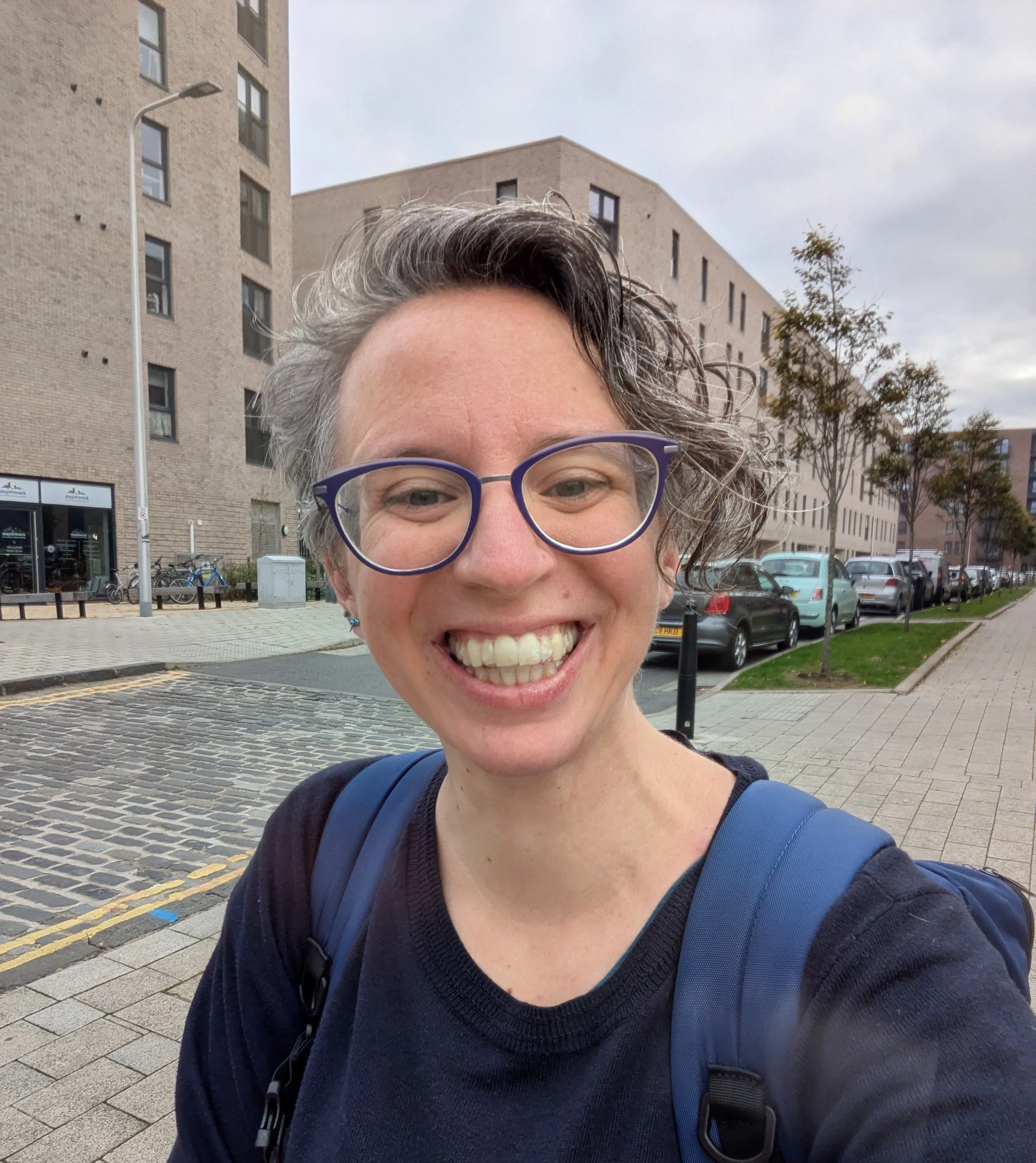It’s me, Dr Clare Jonas
Read on for information on my academic background, my research communication experience, my coaching and wellbeing support experience, and who I am.
-
My academic background
I’ve got an MSc in Neuroscience and a PhD in Psychology, and I worked in universities for 10 years as a psychology researcher and lecturer before switching careers to spend 8 years working as a research communicator, mostly at medical research funders.
From my background in research, I’ve got a deep understanding of how the mind and brain work.
From all my work environments, I’ve got first-hand knowledge of the early and middle stages of a career in academia - the joys and the struggles - and extensive experience of supporting both students and researchers in navigating academia.
-
My research communication experience
I always loved teaching. Watching my students grasp something complex for the first time or get really excited about a new idea filled me with delight. I loved being asked questions about what I’d taught, and I loved it even more when my students outclassed me in their understanding - it meant I had done a good job as a teacher.
The problem was, I loved teaching more than research. It became increasingly clear that academia wasn’t right for me.
It was very lucky that in 2013 I was approached by BitterSuite, an artistic community who create multisensory musical experiences. Steph and her team opened my eyes to the idea that supporting people to understand research didn’t just have to occur in the context of teaching, and have taught me a lot about how to be a good communicator and also gave me the opportunity to learn how to do audience evaluations. I’m still one of their on-call science advisors!
I left academia in 2017 for a career as a research communicator. For the next eight years I worked in research communications roles, mainly at medical funders.
I also carried on doing my own research communication work in my spare time, developing and running science-meets-art events, appearing on podcasts, and writing about the everyday uses of psychology research like how to get rid of a song that’s stuck in your head.
I developed a deep knowledge of research communication in these jobs and started supporting researchers I was working with to develop the same skills - something I still love doing now.
-
My coaching and wellbeing support experience
I was diagnosed with ADHD in my 30s, but before then I spent a long time thinking I was a very anxious person. Both before and after the diagnosis, I’ve spent a lot of time figuring out how to look after my own mental, physical and emotional health: through therapy, self-reflection, discussion with friends… and (because I am a psychologist) a lot of reading about the research on mental health and wellbeing.
My focus on health and wellbeing got taken to a new level when Covid arrived and a lot of people were struggling with the emotional impacts of lockdown. I realised that I could use my research communication skills to share what I’d learned with others and started offering evidence-based stress management workshops for organisations including Blood Cancer UK. Later, as lockdown lifted, these morphed into workshops for researchers on how to cope with the common stressors of academia.
And then, in 2023, I volunteered as a coach for young adults with Arts Emergency and swiftly realised that in fact I’d been coaching for a long time. I just hadn’t known the word for it.
After this revelation, I spent the next couple of years developing my my coaching skills with researchers and colleagues. I realised that I especially love working with people who are neurodivergent or are in career transitions - those are two things that I really needed support with and it is a joy and a privilege to help others facing similar challenges.
Looking back, I can see the roots of my coaching style and workshops were in the approach I took to teaching and pastoral care with students.
Now, as then, I take a largely nondirective approach to coaching, instead providing grounded, nonjudgemental support and scaffolding for you to figure out where and who you are now, where and who you want to be in the future, and how you want to get there.
My workshops and webinars are more directive, with suggested activities for discussion and self-reflection, but I still do my best to provide a nonjudgemental, emotionally regulated time and space where you can focus on what you need, not what the world is asking of you. -
Who I am
I love learning who someone really is. Not who they think I want them to be. Not who the world has told them to be. Who they are.
It’s not always easy to open up about who you really are, but one thing I’ve learned is that it’s easier if it’s reciprocal. So, here are a few things about who I am. I hope they’ll help you feel safer to be yourself with me if we work together.
When I was diagnosed with ADHD as an adult, it completely rearranged my sense of who I am, largely for the better.
I knit. A lot. Mainly socks.
I grew up in Cornwall, but I’ve since lived in (among other places) London, Amsterdam, and Fife. I now live just outside Manchester.
I believe that kindness and niceness are two different things. Kindness is being good to others because it is the right thing to do, while niceness is being good to others because we want them to like us. Like Skeletor, I am not nice. But I am kind.

